Principles 4 – 7
By: Helsing Admin
[NOTE: This article is Part V in a series where each article builds on the previous articles. We recommend you start with Part I first.]
Principle 4 – Focus on Ends
The board’s primary contribution is to clearly state desired outcomes
Principle 2 states that the board must define effective association performance. A focus on Ends is key to accomplishing this.
Ends embody the long-range vision for the association as well as short-term targeted needs. In both cases, the board identifies in writing:
· The results, changes, or impacts that are intended to be achieved from operational activity
· For which people and groups
· At what cost, worth, or priority
An end is a desired outcome – it does not include the processes, programs or activities to be undertaken to achieve that outcome. The board focuses on the outcomes that, when achieved, constitute success for the association – the outcomes that constitute the optimal return on investment (“ROI”) of member’s assessments and fees.
Principle 5 – Use policies to express board decisions
Performance standards for the association, including those for the board itself and for the manager/staff, are codified as governing policies
Policies are often thought of as bureaucratic “rules and procedures,” but in the context of Policy Governance they are much broader. Since the board can’t foresee every decision that must be made, it leads by setting forth the values and parameters within which actions are to take place. Well-crafted policies articulate the authority delegated, and the behaviors, practices, disciplines, and conduct that are expected by the board.
Earlier in this series, we stated that all issues/decisions are either Ends or Means, and that Means are further divided into three sub-categories. Two of these are the board’s directives to itself, and the third controls the operational Means decisions delegated to the manager.
Policies that address the board’s expectations of management/staff:
· Ends policies
· Staff means policies
Policies that address the board’s expectations of itself:
· Governance process policies
· Board/management delegation policies
Note: All of the board’s directives to itself are Means; the board and how it works are not the purpose of the association, but instead are a key vehicle and “process” to ensure the association performs well.
Having policies in place is not a guarantee of performance, but boards that establish sound values and guidelines in advance, and then act in accordance with them, invariably accomplish more than those who “fly by the seat of their pants.”
In your association:
· Does the association have policies that clearly address what the manager and staff are to achieve, and the degree of authority within which the manager must act, without seeking approval?
· Does the association have any policies that clearly address the authority delegated to it and expectations of the board, its officers, and its committees?
Principle 6 – The Board’s Expectations of Itself
The board clearly states and abides by policies that guide its own processes
Principle 5 clearly states that policies are needed to articulate the board’s expectations of the association as a whole. Principle 6 focuses on a subset of these, the types of policies boards need regarding their own processes.
· Governance Process policies specify the board’s task and how the board and its members work together to carry out their responsibilities
· Board/Management Delegation policies guide the working relationship between the board, the manager, and staff, including manner of delegation, accountability, and evaluation.
Principle 7 – Proscribe Staff Means
The board creates management limitations policies that set parameters within which the manager is authorized to make decisions and act
Instead of trying to define everything the manager and staff “should” do, the board should consider what is not to happen by asking: “What actions and situations would be unacceptable to us, even if they were successful in producing desired outcomes?” The answer usually focuses on stewarding and protecting the association’s assets, both tangible (e.g. finances and facilities) and intangible (relationships with members, employees and other stakeholders, communications with the board, etc.).
By setting these boundaries, the board delegates actions and decisions within the boundaries as “pre-approved.” This proactive approach gives the manager flexibility to manage effectively and efficiently, without constantly seeking the board’s approval.
When staff means policies are framed this way, they are called “management limitations policies.”
In your association – What management limitations policy or policies might the board consider?
The Policy Governance Series draws heavily on John Carver’s service marked endeavors and much of the Homeowner Association model relies on and is reproduced with permission from and is Copyrighted by The California Association of Community Managers (CACM). Articles are for advertising and general information by The Helsing Group, Inc. They are not intended to provide legal advice, but rather reflect our opinions as Community Association managers and Consultants. Readers should not act on issues raised in our newsletters or websites without consulting legal counsel.
Copyright 2012
The Helsing Group, Inc.
All Rights Reserved
[i] Policy Governance® is a registered service mark of Dr. John Carver. The authoritative website is www.policygovernance.com



